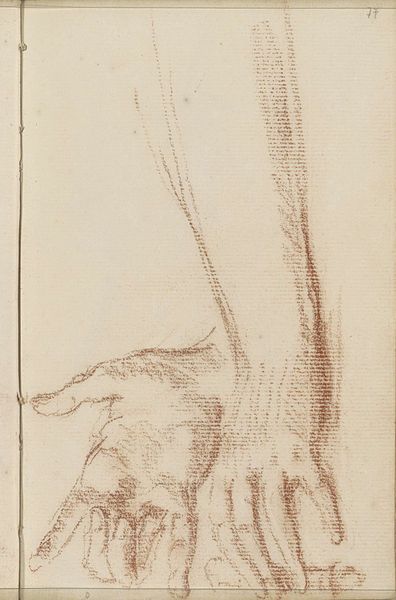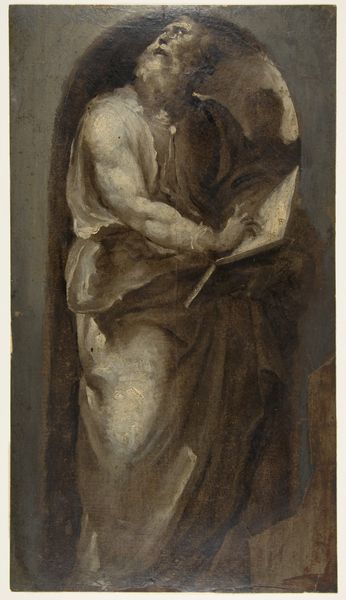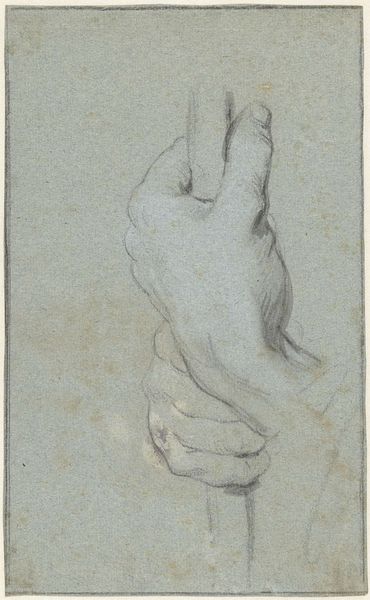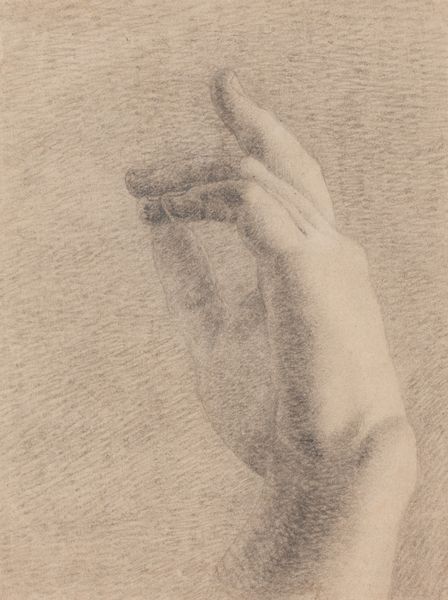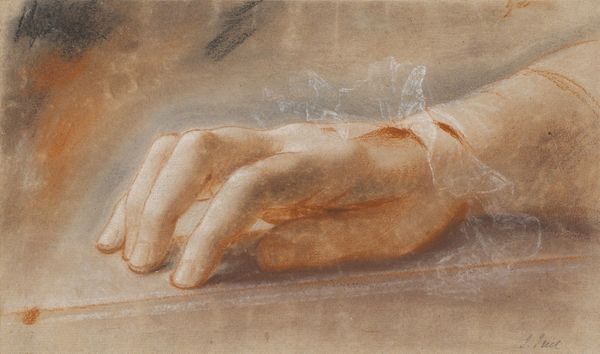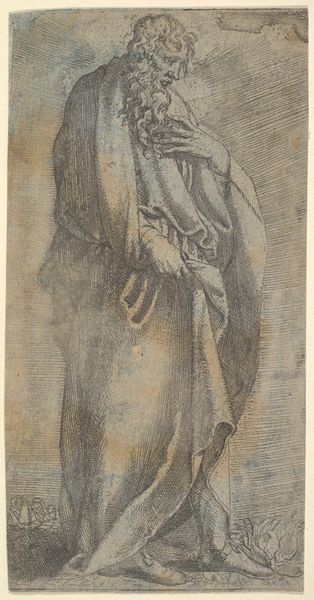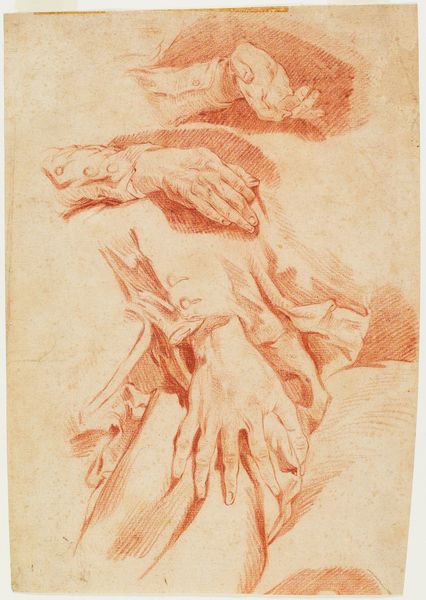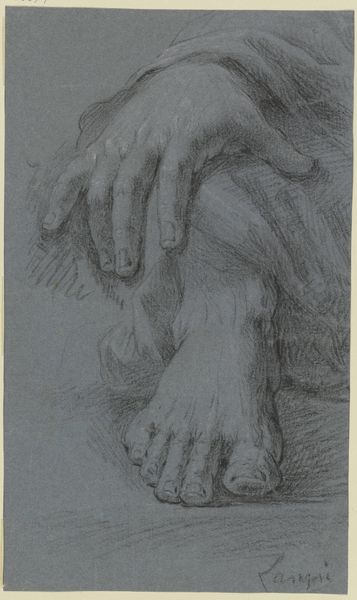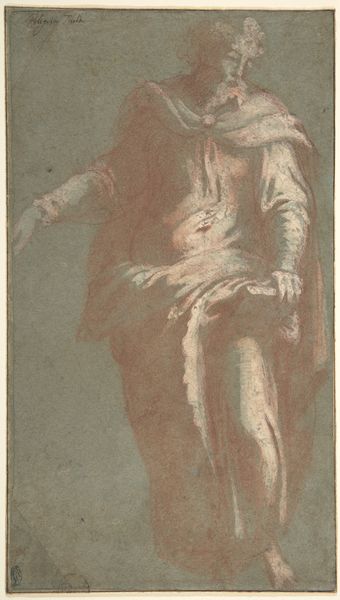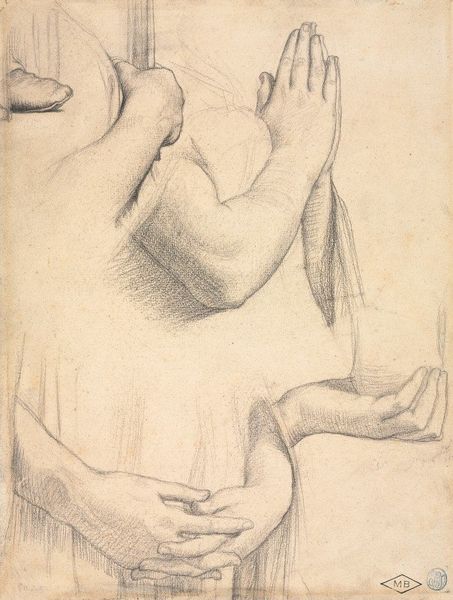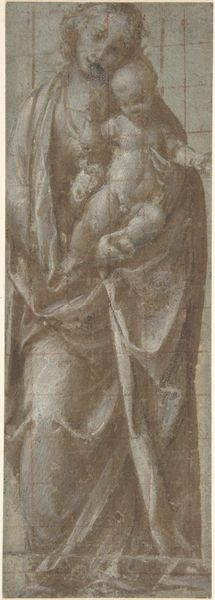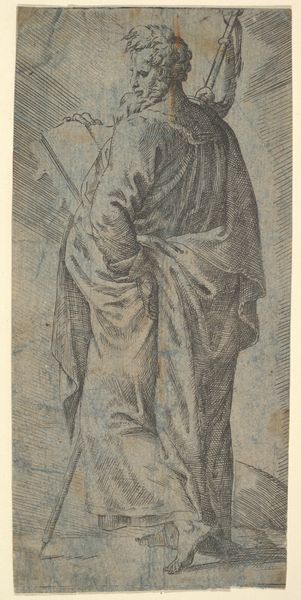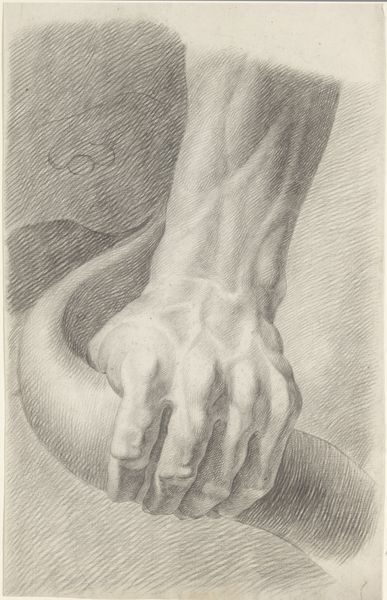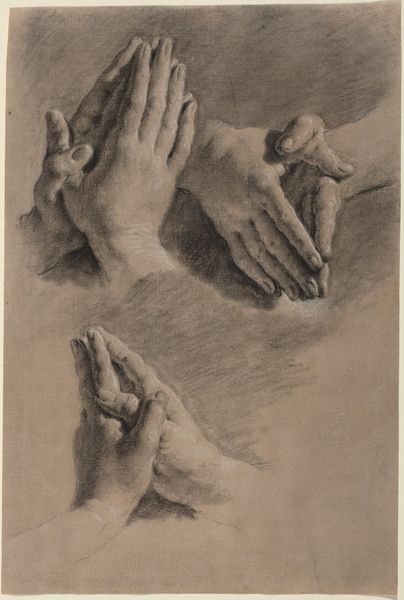
painting, oil-paint
#
painting
#
oil-paint
#
figuration
#
oil painting
#
academic-art
#
nude
#
realism
Dimensions: height 260 mm, width 163 mm
Copyright: Rijks Museum: Open Domain
Simon Andreas Krausz painted this left foot in oil on canvas sometime in the late 18th or early 19th century. Artists in the French Royal Academy were set exercises, and often only fragments of the body were depicted in isolation. This academic tradition harked back to the Renaissance when the male nude was seen as the pinnacle of artistic skill and a vehicle for communicating Classical ideals. But this wasn't straightforward. From the Enlightenment onwards, the art academy was seen as an increasingly conservative institution, enforcing a rigid hierarchy of genres and subjects and the dominance of male artists. Krausz’s study of a left foot, divorced from the rest of the body, might be read as a quiet critique of the obsession with the idealised male nude at the expense of other worthy subjects. Historians use all sorts of resources, including student exercise books, financial records and personal letters, to reconstruct the social and institutional contexts in which art is made. This helps us to go beyond face value and reflect on the political meaning of imagery.
Comments
No comments
Be the first to comment and join the conversation on the ultimate creative platform.
